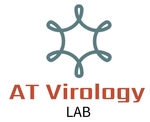Abstract
BACKGROUND: Immunogenicity and reactogenicity of COVID-19 vaccines have been established in various groups of immunosuppressed patients; however, studies involving patients with immune-mediated dermatological diseases (IMDDs) are scarce.
OBJECTIVES: To investigate the influence of IMDDs on the development of SARS-CoV-2-specific immunity and side-effects following ChAdOx1-S[recombinant] vaccination.
METHODS: This prospective cohort study included 127 patients with IMDDs and 97 participants without immune-mediated diseases who received ChAdOx1-S[recombinant]. SARS-CoV-2-specific immunity and side-effect profiles were assessed at 1 month postvaccination and compared between groups. Immunological (primary) outcomes were the percentages of participants who tested positive for neutralizing antibodies [seroconversion rate (SR)] and those who developed T-cell-mediated immunity demonstrated by an interferon-γ-releasing assay (IGRA) [positive IGRA rate (+IGRA)]. Reactogenicity-related (secondary) outcomes were the unsolicited adverse reactions and worsening of IMDD activity reflected by the uptitration of immunosuppressants during and within 1 month of vaccination.
RESULTS: Overall, the SR for the IMDD group was similar to that of participants without immune-mediated conditions (75·6 vs. 84·5, P = 0·101), whereas + IGRA was lower (72·4 vs. 88·7, P = 0·003). Reactogenicity was similar between groups. No severe adverse reaction was reported. By stratifying the participants in the IMDD group according to individual disease, the immunogenicity of the vaccine was lowest in patients with autoimmune bullous diseases (AIBD) (SR 64·5%, +IGRA 62·9%) and highest in patients with psoriasis (SR 87·7%, +IGRA 80·7%). The reverse trend was found for vaccine-related reactions. Immunosuppressants were uptitrated in 15·8% of cases; 75% of these were patients with AIBD.
CONCLUSIONS: Among participants with IMDDs, ChAdOx1-S[recombinant] showed good immunogenicity among patients with psoriasis, but demonstrated lower levels of immunogenicity for patients with AIBD. Some patients, especially patients with AIBD, should be closely monitored as they may require treatment escalation within 1 month postvaccination.
